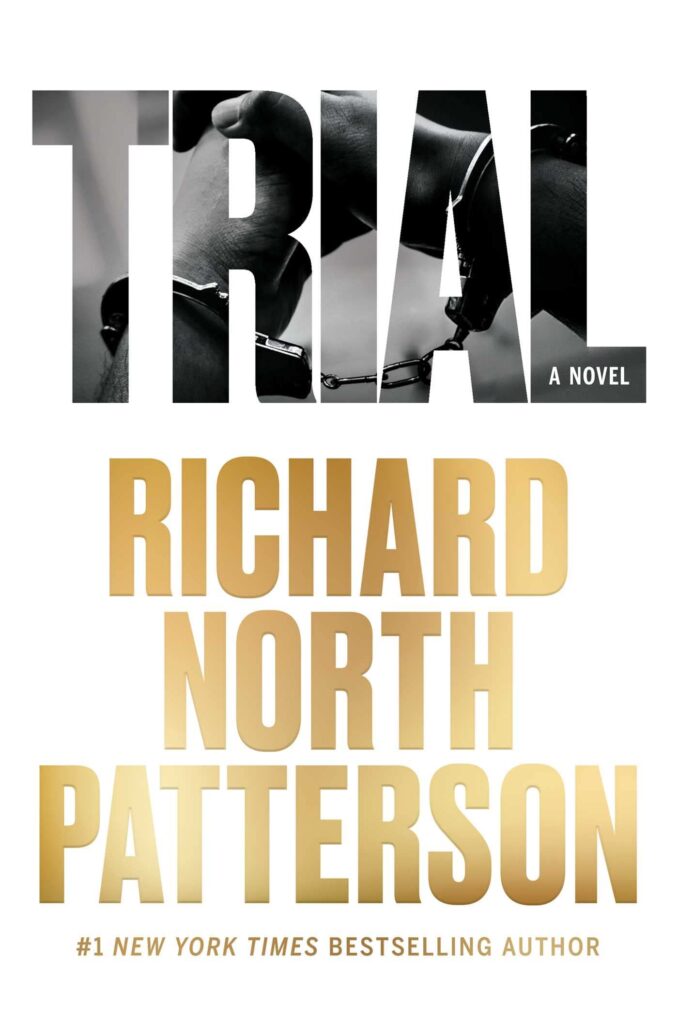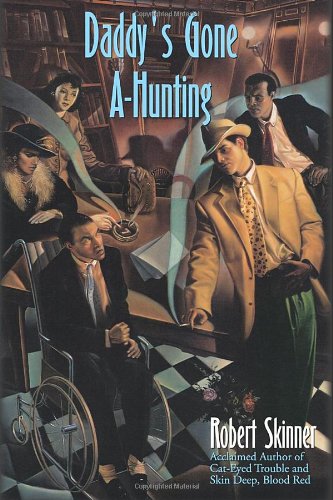
In a recent essay in the Wall Street Journal, author Richard North Patterson explains why he, as a white writer writing about a black defendant in his upcoming novel TRIAL, encountered difficulty in getting it published by any of the major publishing houses. I recommend that your read this article. The statement from one publisher that she “only cared to hear on such subjects from ‘marginalized voices’” is similar to the one from another publisher, “[You’re] too liberal for white people and too white for Black people.” So TRIAL is coming out in June from a small press – Post Hill Press. I intend to read it.
This is not the first time this has happened. Richard North Patterson recounts the flack surrounding the publishing of AMERICAN DIRT in 2020.
But also, back in the late 1990s, a white author named Robert Skinner came out with the critically acclaimed Wesley Farrell (a black protagonist) series from Kensington. Two books were published and the third, DADDY’S GONE A-HUNTING was in production. I received a printed advance reading copy from Kensington which included the stylish cover art of the series.

Then Kensington cancelled the author’s contract before printing the hardcover edition of DADDY’S GONE A-HUNTING. Word on the street was that Kensington was developing a line featuring black authors and that some of those authors complained about a white author writing about a black character. Eminent bookseller Barbara Peters was a fan of the series so she published DADDY’S GONE A-HUNTING and three more in the series. Fortunately at the time, it did not become a trend. [An aside: I have signed copies of the Kensington arc, the Poisoned Pen arc and the Poisoned Pen hardcover edition of DADDY’S GONE A-HUNTING in my collection.]
If you follow this faulty publisher logic described in Patterson’s essay, to its ad absurdum conclusion we would have to wipe out the vast majority of Tony Hillerman’s works, as one example. Dennis Lehane’s SMALL MERCIES, which has just been published, deals with race relations in an extremely insightful manner. One black character in that book was particularly well-drawn. Should he not be able to write about such things because he is white? Should S. A. Cosby remove white characters from his masterpiece RAZORBLADE TEARS because, obviously, he can’t understand them like white authors can? Are we going to cancel women authors who write about men and male authors who write about women? You can see how ridiculous this logic is.
I am delighted that more authors of color are being published now than ever before. But I would argue that many of them are successful because they are good writers and write the kind of books we like to read – not because of their race or color. They may have certain insights that white authors may not have, but that is not to say that white authors can’t read, research and interview to gain those same insights and others and write meaningfully about characters of color.
This type of thing divides rather than brings us all together. I favor things that bring all of us, as fellow human beings, together.
I try to keep politics out of our magazine, but I felt impelled to comment on this. Hence, this post. You won’t see this in the magazine. Deadly Pleasures is ONLY about mysteries, crime fiction and thrillers. No agendas allowed.
Thanks to DP contributor Mike Dillman for bringing the WSJ article to my attention.
Deadly Pleasures contributor Ali Karim expresses his thoughts on this matter.
“I concur with George Easter on the welcome aspect of identity politics being acknowledged in the Crime / Mystery genre.
Though of a liberal viewpoint, I respect other viewpoints [as long as they do not hurt others] so I rarely comment about politics [apart from my personal Facebook page].
This is a rare exception.
Like much of society, there has been change afoot vis-à-vis identity politics in terms of race, sexuality, gender and disability, for some it’s been slow but welcome. For others it’s been too fast, and unwelcome.
Challenging the status quo is never easy.
I am from a minority, son of immigrants. My parents insisted on myself and two younger brothers to get a good education. I became an avid reader as a result. I adore crime and mystery novels. The Arthur Conan Doyle Sherlock Holmes were favourites, as the author was of a liberal mindset, and compassionate when talking about colonial India, where [my parents as well as] Dr Watson originated and as for The Sign of Four, well, that was a great evocative read. I also enjoyed the Ian Fleming novels, and the Agatha Christie works, but as a young mind, I was troubled by the casual racism and sexism they contained but Christie and Fleming were great storytellers, so I tried to separate the ‘art’ from the ‘artist’.
As I grew older, I discovered to my horror, the deeply troubling Antisemitic and Racist views [often evident] in the writings of two writers I held in awe – H P Lovecraft and Patricia Highsmith. These two authors I adored [and still do], but their personal views were [and remain] repugnant. It was curious that Lovecraft’s short-lived marriage was to a woman of Jewish Heritage, and Highsmith had several female lovers that were Jewish.
Anytime I read about minority characters such as Black, Jewish, Hispanic, Asian, Female, Transgender or Disabled in leading roles, I cheer.
And there came Spenser and Hawk.
I loved the work of the late Robert B Parker. I was sad to have never met him and shook his hand and told him how much pleasure his work has given me since my teenage years – but after he passed away, I exchanged correspondence with his widow Joan Parker expressing why I admired her husband, beyond his elegant writing skills –
Here’s an excerpt from my letter:
Some of the so called British Golden Age [mystery] novels had casual homophobia, anti-Semitism and racism, which was a feature of the period that those books were written in (and included Ian Fleming, Agatha Christie, etc.). I, however, loved the Spenser novels by your late husband; because they were the complete opposite–compassionate and liberal. I followed the adventures of Spenser and Hawk with alacrity, first discovering them in a second-hand bookstall in Cheshire (dog-eared U.S. paperbacks). Spenser and Hawk became my friends as a teenager, and I enjoyed their company and how they stood up for the underdog. I recall my excitement when I cracked the spine of The Judas Goat [1978], when Spenser and Hawk came to London, England, it was wonderful!
In response, Joan sent me a delightful e-mail note, thanking me for my letter. And after scanning it in its entirety, she posted my message on the Robert B. Parker Facebook page. Then she sent me this e-note, which provided an early insight into Bob Parker and his insistence on standing up for society’s underdogs:
Dear Ali–Thank you so much for your very kind letter. I am so touched by your story and grateful that you chose to share it with me. I will share a story with you. Bob and I went to Colby College together–and at that time it was very important to belong to a fraternity. Bob’s very close friend was one of the few black students admitted to Colby at that time. Bob was invited to join Lambda Chi Alpha–his friend was not. We were not dating at the time, but Bob was my best friend, and after a few months of living in the Lambda House, he confided in me, his outrage at what was apparently an unwritten edit of Lambda membership. That is, no blacks allowed. [W]e were both disgusted and appalled by this–but Bob acted quickly and renounced his membership–moved out of the fraternity house and made a point of registering his outrage with the national chapter of Lambda. The year was 1950–and this was a bold gesture on Bob’s part–but more than that–it was a principal held to so deeply… that he couldn’t have done otherwise. He was the most principled man I had ever met. I was impressed–I still am. Thank you again, Ali, for sharing your story… All the best, Joan
I read out aloud my letters with the late Joan Parker at Bouchercon Albany, in 2013, when I closed a panel I chaired ‘Remembering Robert and Joan Parker’ >
http://therapsheet.blogspot.com/2013/10/remembering-robert-and-joan-parker.html?m=1
It was a full house, and there was a lot of good-natured laughter as anecdotes were shared with the assembled audience during the panel, but a respectful silence fell when I finished the session with those letters.
I am delighted to read the voices from the minorities, the edges of society – as these side-lined authors [and characters] take their place in the crime and mystery genre, so as George Easter closed his heartfelt essay, let me follow his sentiment –
“I favor things that bring all of us, as fellow human beings, together.”
Amen to that.